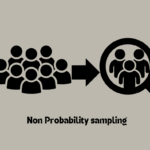A Focus Group Interview is a qualitative research method designed to gather rich, detailed information regarding the concepts, perceptions, and ideas held by a collective group of individuals. Unlike traditional interview formats that typically involve a straightforward question-and-answer exchange, a Focus Group Discussion fosters an interactive environment where participants engage in thoughtful dialogue about the topic at hand. This discussion is facilitated by a moderator who guides the conversation yet allows for free-flowing interaction among group members. This approach is well-defined in the work of Powell et al. (1996).

What is the Purpose of a Focus Group Interview?
The primary aim of focus group research is to elicit nuanced insights into participants’ attitudes, feelings, beliefs, experiences, and reactions. This method is particularly effective for collecting qualitative data in a way that is often unattainable through other methodologies, such as direct observation, one-on-one interviews, or standardized questionnaire surveys. By tapping into the interactive nature of group discussions, researchers can uncover hidden insights and explore complex issues in depth.
In Which Disciplines Are Focus Group Interviews Conducted?
Focus group interviews find application across a wide range of academic disciplines and professional fields. They are frequently utilized in Social Sciences—which includes areas like Political Science, International Relations, and Library Science—as well as in Marketing and Consumer Research. Additionally, they are valuable in Usability Engineering and Human-Computer Interaction, where understanding user motivations and experiences with computer products is critical. Through these discussions, researchers can gain a comprehensive understanding of how different groups perceive and interact with various concepts and products.
Types of Focus Group Interviews
Focus group interviews can take various forms, each designed to elicit insights in unique ways. Below are six main types:
1. Two-Way Focus Group: This innovative approach involves two distinct groups that discuss the same topic but at different times. While the first group engages in an open discussion, the second group observes from a distance. Following the initial conversation, the observing group conducts their session, utilizing insights gleaned from their observational experience to delve deeper into the subject matter and provide enriched perspectives.
When Needed: This method is useful for comparative analysis, exploring complex topics, and validating ideas through interaction among stakeholders with differing perspectives. It’s particularly valuable for testing reactions, resolving conflicts, and refining concepts through feedback.
2. Dual-Moderator Focus Group: In this format, two moderators work in tandem to facilitate the discussion. One moderator focuses on the smooth flow of the conversation, ensuring participants feel comfortable and engaged, while the other keeps track of the questions being addressed, ensuring that every topic gets adequate attention and prompting deeper inquiry when necessary.
When Needed: Dual-moderator focus group interviews are used for complex or sensitive topics that require smooth facilitation and in-depth exploration. One moderator manages group dynamics and flow, while the other ensures all key questions are addressed, facilitating effective engagement and comprehensive data collection.
3. Mini Focus Group: This variant is characterized by a smaller participant pool, typically consisting of just 4-5 members instead of the standard 6-10. The reduced size allows for more intimate dialogue and deeper connections among participants, which can lead to richer qualitative data.
When needed: This format is ideal for exploring detailed insights on sensitive topics or niche populations with specialized knowledge. It’s also practical when there are logistical constraints, like limited time or budget, ensuring meaningful interaction and data quality.
4. Client-Involvement Focus Group: This type comes into play when clients wish to have a hands-on role in the research process. They not only request the focus group to be conducted but also participate in inviting attendees. This ensures that the discussions are particularly relevant to the client’s interests and areas of concern.
When needed: This approach is valuable for product development, service improvement, and concept testing, as it provides actionable insights, fosters collaboration, and ensures client-centered solutions.
5. Participant-Moderated Focus Group: In this format, one or more participants temporarily take on the role of moderator. This can encourage more genuine feedback and open dialogue, as participants may feel a greater sense of ownership over the conversation, but it also requires careful management to ensure the discussion remains productive.
When Needed: This approach is effective for exploring shared experiences and cultural nuances, fostering openness, reducing bias from traditional moderation, and generating authentic insights.
6. Online Focus Group: Leveraging technology, online focus groups allow for the gathering of opinions and feedback through digital platforms. Participants are categorized into three roles: observers, who monitor the discussion; moderators, who guide the conversation; and respondents, who provide their insights. This approach increases accessibility and convenience for participants who may not be able to attend in-person sessions.
When needed: This format effectively reaches diverse or hard-to-access populations and supports real-time or asynchronous discussions. It’s particularly useful for topics that utilize digital tools like screen sharing or polls, and when anonymity encourages candor.
Advantages and Disadvantages of Focus Group Interviews
Advantages:
- Rich Detail: Focus group interviews typically yield comprehensive and nuanced information. Participants share experiences and opinions that create a deeper understanding of the topic.
- Cost-Effectiveness: When compared to conducting individual interviews, focus groups can be more economical, allowing researchers to collect data from several individuals in a single session.
- Speed and Efficiency: The format facilitates quick gathering of information, allowing researchers to obtain results and insights rapidly, which can be crucial in decision-making processes.
Disadvantages:
- Limited Depth: While focus groups generate rich discussions, they may not cover all the intricacies of a subject as thoroughly as one-on-one interviews could.
- Potential Bias: The group dynamic can introduce biases that skew the results, as dominant voices may influence the opinions of quieter participants.
- Need for Skilled Moderators: Effective focus groups require trained moderators who can navigate group dynamics and ensure that all voices are heard, which may entail additional costs and resources.
- Limited Control Over Outcomes: Researchers may find it challenging to manage the direction of the conversation, leading to outcomes that don’t align with their original goals.
- Vocal Dominance: In some cases, a few participants with very strong opinions can overshadow the views of others, resulting in incomplete data.
- Group Composition Challenges: Assembling a diverse and representative group can be difficult, which may limit the overall effectiveness and applicability of the findings.
A focus group consists of carefully selected individuals brought together by researchers to share their insights and perspectives on a specific subject, drawing from their personal experiences. This dynamic setting not only encourages diverse viewpoints but also enables participants to build on each other’s thoughts, revealing a deeper understanding of the topic.



